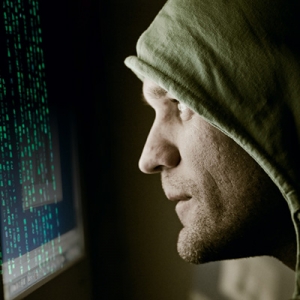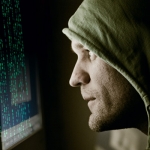If you have ever been the victim of a computer virus or cyber attack you know how bad it can hurt. You know the pain of having your data compromised or even your business operation completely shut down. You feel violated, and to add insult to injury, you have no idea who did this dirty deed.
Cyber criminals are always anonymous and clearly the bad guys, which would make us at Quikteks the sheriff in town, we are here to serve and protect you. Today, we want to pull back the curtain of anonymity, tack up a big wanted poster, and show you their ugly mugs.
These perpetrators have no regard for the law, or may even rationalize how the law does not apply to them. They obviously have technical knowledge and enjoy using their skills to manipulate and outsmart others. Some cyber criminals do it simply for the thrills and enjoy the risk and chaos they create, while others have more specific intentions like monetary gain. Additional cyber criminal motivations include: emotional reasons like revenge, political and religious loyalties, and even reasons that are sexual in nature.
We might picture cyber criminals huddled in groups, working in a dark warehouse, but a majority of the crimes would be classified as “petty” and are carried out by normal individuals acting alone. Part of the problem of cyber crimes is found in the variety of criminals it draws. Within the hacker community a class system exists based on an individual’s technical expertise and the potential damage one can cause.
- Toolkit Newbies. Technical novices who generally download illegally from the internet.
- Cyber Punks. Capable of writing programs able to deface websites. Spamming and phishing for identify theft also falls within their skill set. They are usually boastful of their hacking success.
- Coders. Write code solely for the purpose of damaging other systems. Their motives are ulterior and spyware and Trojans are primarily used.
- Old-guard hackers. Hacking is a sport for the old guard, they treat it as a mental exercise. They are highly skilled and do not cross the criminal line.
- Hacktivist. This group is the fastest growing and they can cause big damage. They are politically or socially motivated and receive funding from other groups who share their agenda.
Due to the complexity of computer networks, cyber criminals are particularly hard to catch, the crimetrail usually ends at a computer. In fact, only five percent of cyber criminals are actually caught and prosecuted. This leaves them with a 95% chance of getting away with it, which only goes to embolden their actions.
Simply because a cyber criminal is hard to catch, does not mean it has to be easy for them to succeed. You can protect yourself by keeping your antivirus software up-to-date and training everyone who uses your network to know what to look for with email phishing scams and scareware popups. Having a sheriff on your side to watch your back is the best defense against attacks from these cyber creeps, at Quikteks we want to be your sherriff. We can manage your antivirus software, identify weaknesses in your firewall, as well as provide you with other defensive techniques. Give us a call at PHONENUMBER and let us serve and protect you.


